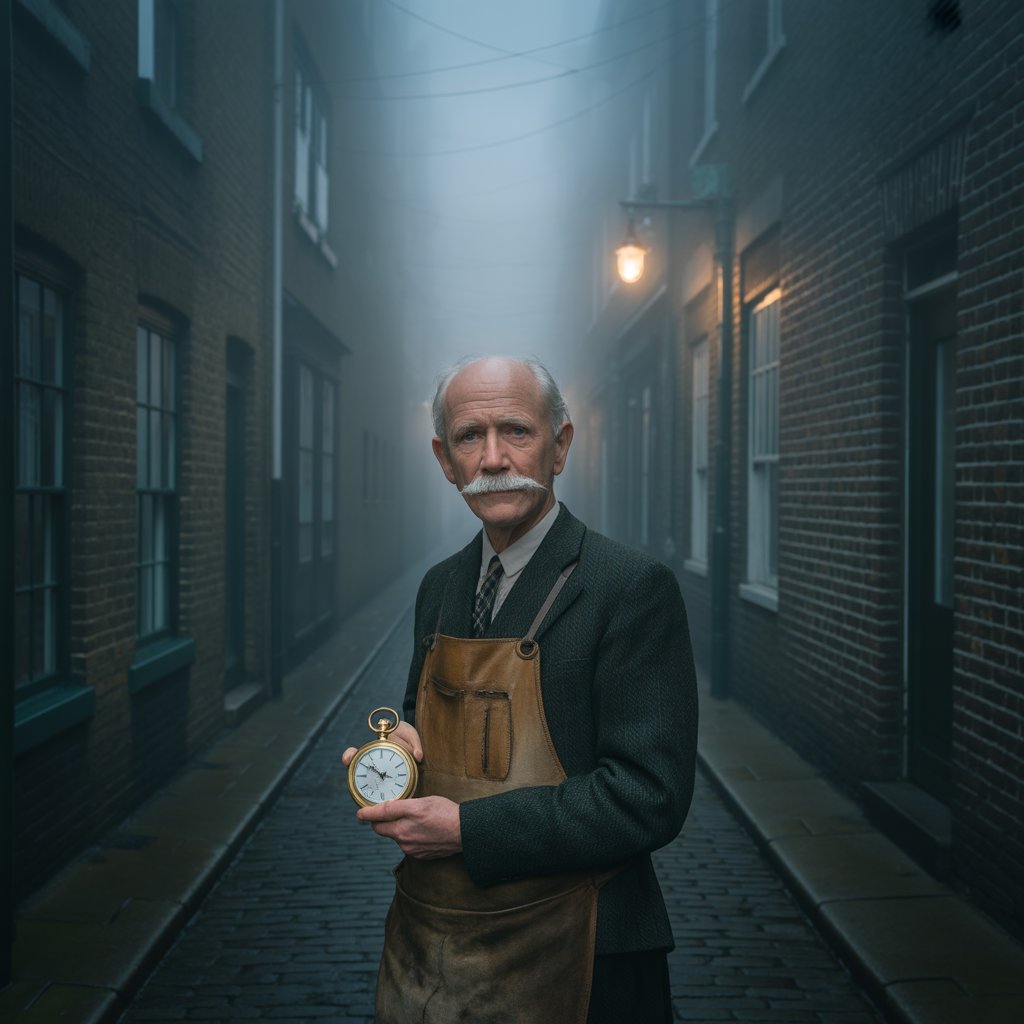In a small, fog-wrapped town that slept beside the edge of the sea, there was a narrow alley known only to a few — Silent Street. Most people avoided it, not because it was dangerous, but because it felt as though time itself hesitated there. The lamps flickered slower, the shadows stretched longer, and the air always carried the faint scent of brass and rain.
At the very end of this street stood a tiny shop with no name, only a crooked sign that read: Repairs Done with Care. Inside lived Ezra, the clockmaker. His shop was filled with hundreds of clocks — tall ones, tiny ones, round ones, all ticking in delicate, imperfect harmony. Some ran fast, some lagged behind, but none ever stopped completely.
Ezra was not an ordinary craftsman. He could fix any clock — even those that others declared hopeless. But what the townspeople didn’t know was that every clock he repaired held a story.
He believed that time carried emotion — that when a person’s happiest or saddest moment occurred, time marked it forever. Sometimes, when he opened a clock, he would hear faint whispers — laughter, tears, or echoes of a long-forgotten song. He never told anyone this secret, fearing they’d think he’d grown old and mad.
One misty morning, a young woman entered his shop. Her name was Lila, and she carried a small silver pocket watch that no longer ticked. “It belonged to my father,” she said softly. “It stopped the night he passed away. Can you make it work again?”
Ezra nodded, as he always did, and placed it on his workbench. As he opened the back panel, a soft hum filled the air — not mechanical, but almost human. Inside, he saw something strange — a fragment of paper folded neatly where the gears should have been. On it was written a single word: “Forgive.”
He looked up at Lila, whose eyes were fixed on the floor. “Your father must have written this,” Ezra said gently. She nodded, tears glistening. “He was a sailor. We argued before he left on his last voyage. I never said goodbye.”
Ezra turned the gears carefully, almost reverently, and whispered something to the watch. It was a ritual he’d done since his youth — a silent wish for healing. Slowly, the hands began to move again. Tick. Tick. Tick.
Lila gasped. “How did you—?” Ezra only smiled. “Time doesn’t stop, my dear. It just waits for the right moment to begin again.”
When she left, the air in the shop felt lighter. The other clocks, which had been oddly quiet, started ticking in perfect rhythm for the first time in years. Ezra listened, smiling faintly, knowing that one more piece of time had found peace.
But that night, as the town fell asleep, Ezra’s own clock — a large golden one above his workbench — began to slow. It was his first creation, built when he was just twenty. Its ticking had guided his entire life. Now, it seemed to whisper back to him.
“You’ve given everyone their time,” it murmured in the faint language only Ezra could understand. “But what about your own?” Ezra chuckled softly. “My time is in theirs,” he said. “Every clock I’ve mended, every second I’ve set free.”
When morning came, the townspeople noticed something strange. The shop door was open, the clocks inside perfectly synchronized, and the chair behind the workbench empty. On the table lay Ezra’s spectacles, a half-polished gear, and a note that read: “When time calls you home, do not be afraid to answer.”

From that day on, no one dared touch the clocks. Yet they all continued ticking, perfectly, endlessly — as if guided by invisible hands.
Years later, children who played near Silent Street said they sometimes heard the faint sound of a heartbeat echoing through the fog. Some swore they saw a figure through the window, an old man with kind eyes adjusting a clock and smiling.
But adults dismissed it as imagination. After all, time plays tricks on those who stop to listen too closely.
And yet, every evening, just as the sun dipped below the sea, the clocks would all chime together — a soft, harmonious sound that drifted through the town like a gentle promise: that no moment is ever truly lost, only waiting to be remembered.







